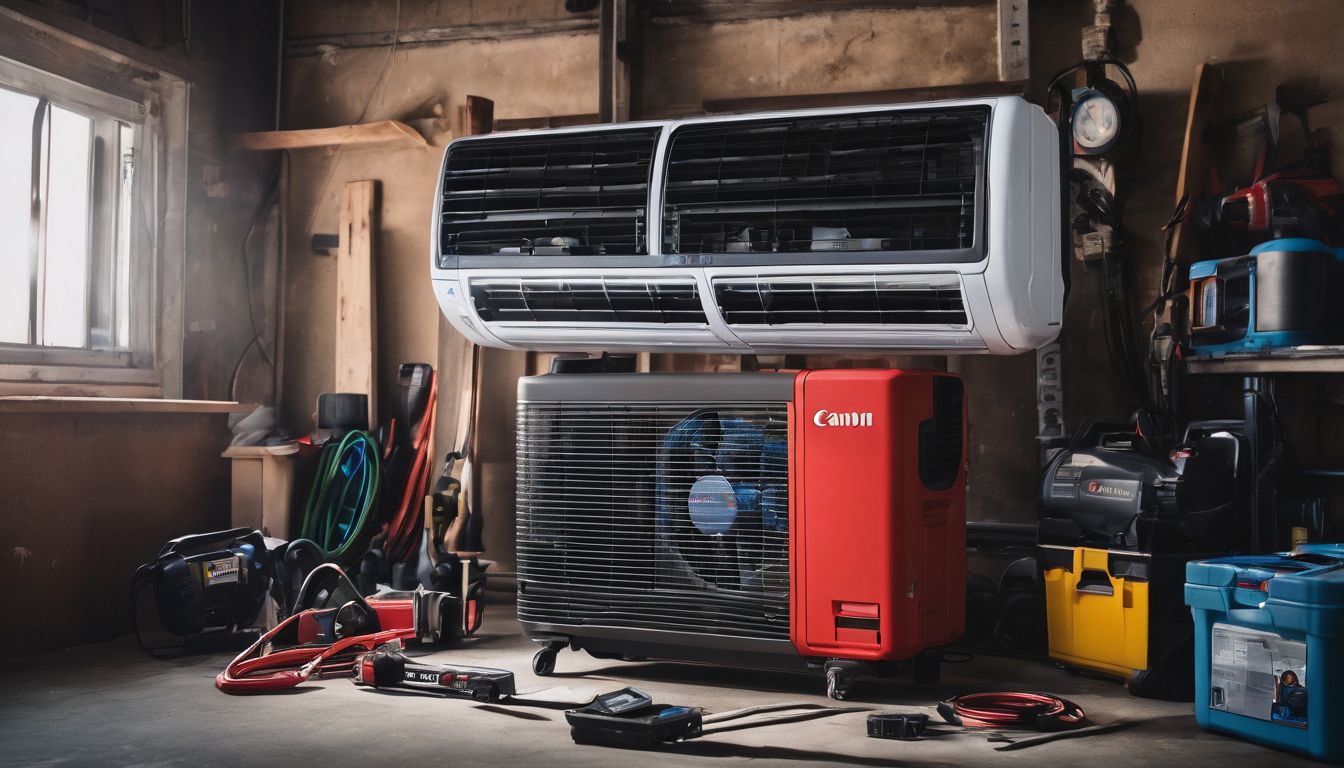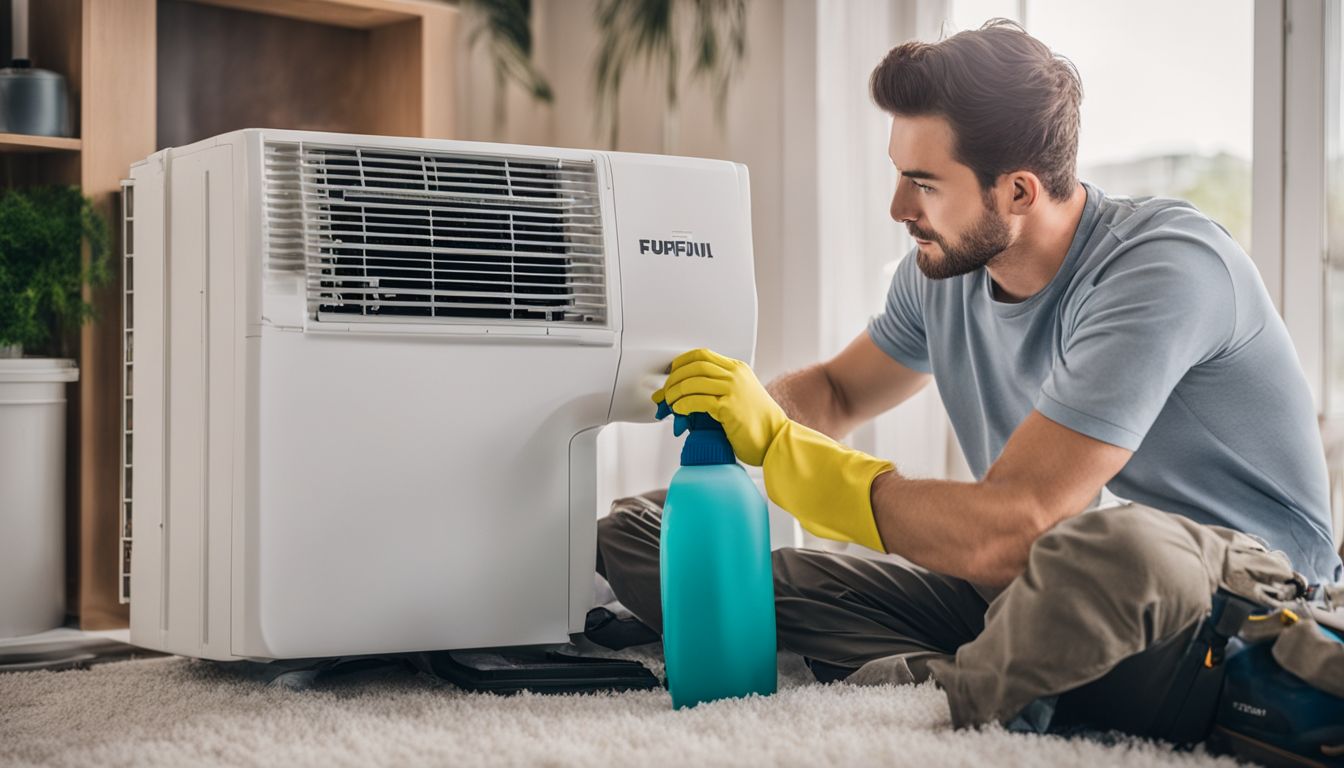As summer heat peaks, the thought of installing air conditioning becomes more appealing. Did you know in Singapore, setting up a new aircon can cost up to $5,912? Our guide will break down these costs and show you how to get the best value for your money.
Dive in and make cooling your home a breeze!
Understanding Aircon Installation
Diving into aircon installation requires a strategic approach, taking into account the layout of your space and selecting an appropriate unit that aligns with both functionality and aesthetic demands.
It’s a process that sets the stage for comfort, efficiency, and long-term satisfaction with your cooling investment.
Determining Installation Locations
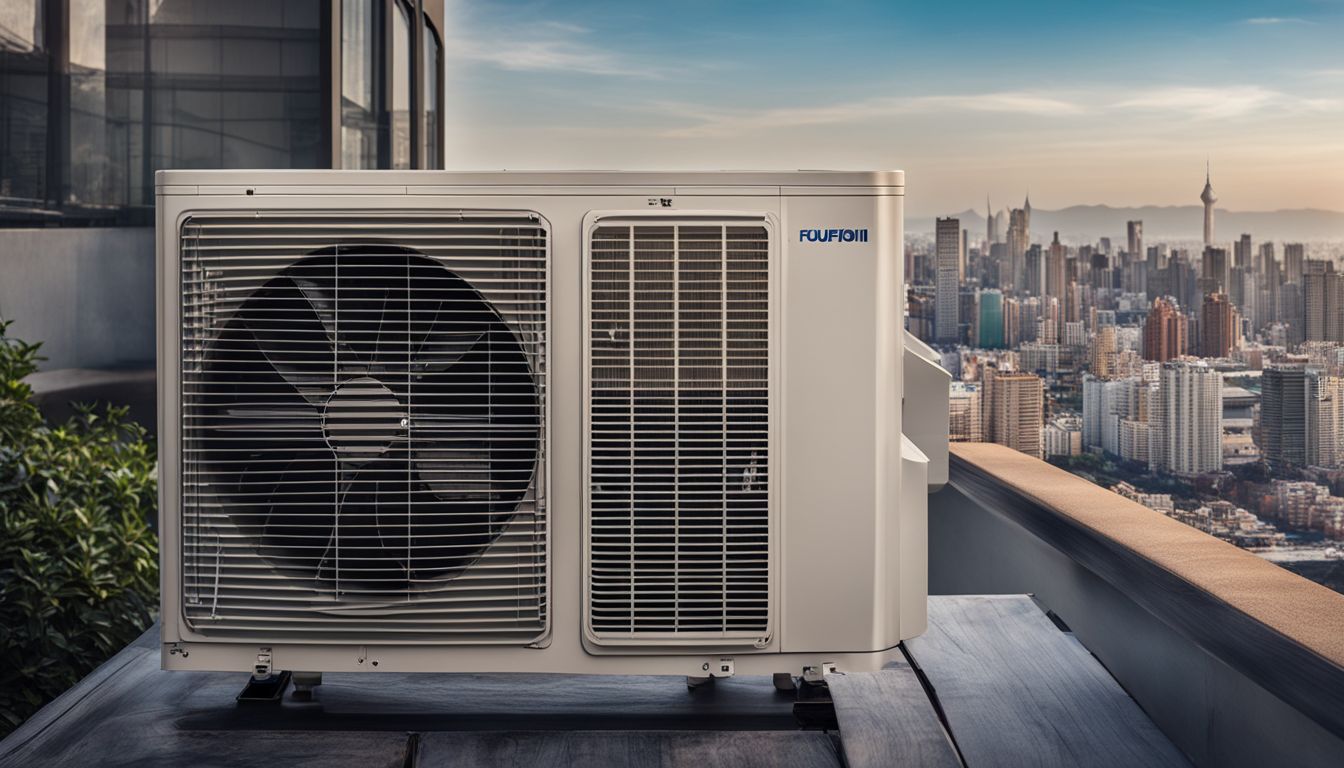
Choosing the best spot for your air conditioning system is a step you cannot skip. Optimal placement can lead to increased energy efficiency and ensure your unit works effectively.
An expert can guide you in selecting an ideal location for both indoor and outdoor units, taking into account airflow, sunlight exposure, and aesthetics of your home or office space.
Installation spots must meet safety regulations while also being accessible for maintenance.
Consider the guidelines carefully as they address potential risks like falling debris or water damage that could affect the outdoor component of split air conditioners. The right location helps prevent future issues such as obstructed fans or compromised performance due to poor positioning.
Ensure there’s enough clearance around the units so they can function without any restrictions, helping you enjoy cool comfort with peace of mind about their operation and longevity.
Choosing the Right Air Conditioner
Selecting the best air conditioner involves assessing your home’s specific needs and matching them with an appropriate system. Consider the size of the area you want to cool, as larger spaces will need AC units with higher BTU levels to efficiently regulate temperature.
If you live in a tropical climate, look for models designed to handle high humidity and frequent use.
Energy-efficient options like inverter air conditioners might have a higher upfront cost but can lead to significant savings on electricity bills over time. Brands such as Panasonic and Mitsubishi Electric offer a range of products suited for different property types, from compact appliances ideal for Housing and Development Board flats to more robust central air systems perfect for landed properties.
Ensure that the chosen unit offers features relevant to your lifestyle; for instance, an integrated dehumidifier could be invaluable if moisture control is a priority.
Factors Influencing Aircon Installation Costs
When considering the installation of an air conditioning unit, various elements come into play that will ultimately shape the overall expense. It’s pivotal to appreciate these factors to ensure a cost-effective approach and avoid unexpected financial outlays during the process.
Type of Air Conditioner
Central air conditioners offer a whole-house solution and are common in newer, open-concept homes. They require extensive installation that often includes ductwork adjustments, which makes them more expensive upfront with costs between $2,500 and $5,000.
Split system air conditioners are becoming popular due to their energy efficiency and less intrusive setup. You can expect to pay around an average of $4,000 for installing such systems.
Portable air conditioners provide flexibility as they can be moved from room to room. Installation is straightforward but they generally don’t match the cooling power of central or split systems.
Despite this limitation, some prefer portable units for single rooms or small apartments where lower cooling capacity is adequate and large-scale installations aren’t feasible. Each type influences your budget differently due to varying requirements like copper pipes for refrigeration circuits or modifications needed within specific property types.
Property Type for Installation
The property type plays a crucial role in determining the complexity and cost of installing air conditioning units. A compact city apartment might only need a small, single-split system that can be fitted without extensive alterations to the building structure.
On the other hand, larger homes with multiple rooms may require a more complex multi-split or ducted system to effectively cool the entire space.
Installers must consider factors like wall thickness, ceiling void spaces, and roof accessibility when fitting air-conditioning equipment into an existing property. Houses with open-plan designs often simplify installation as fewer indoor units are needed.
By contrast, heritage-listed buildings impose restrictions on where systems can be placed due to preservation rules, potentially raising costs due to these unique challenges.
Aircon BTU Level Requirements
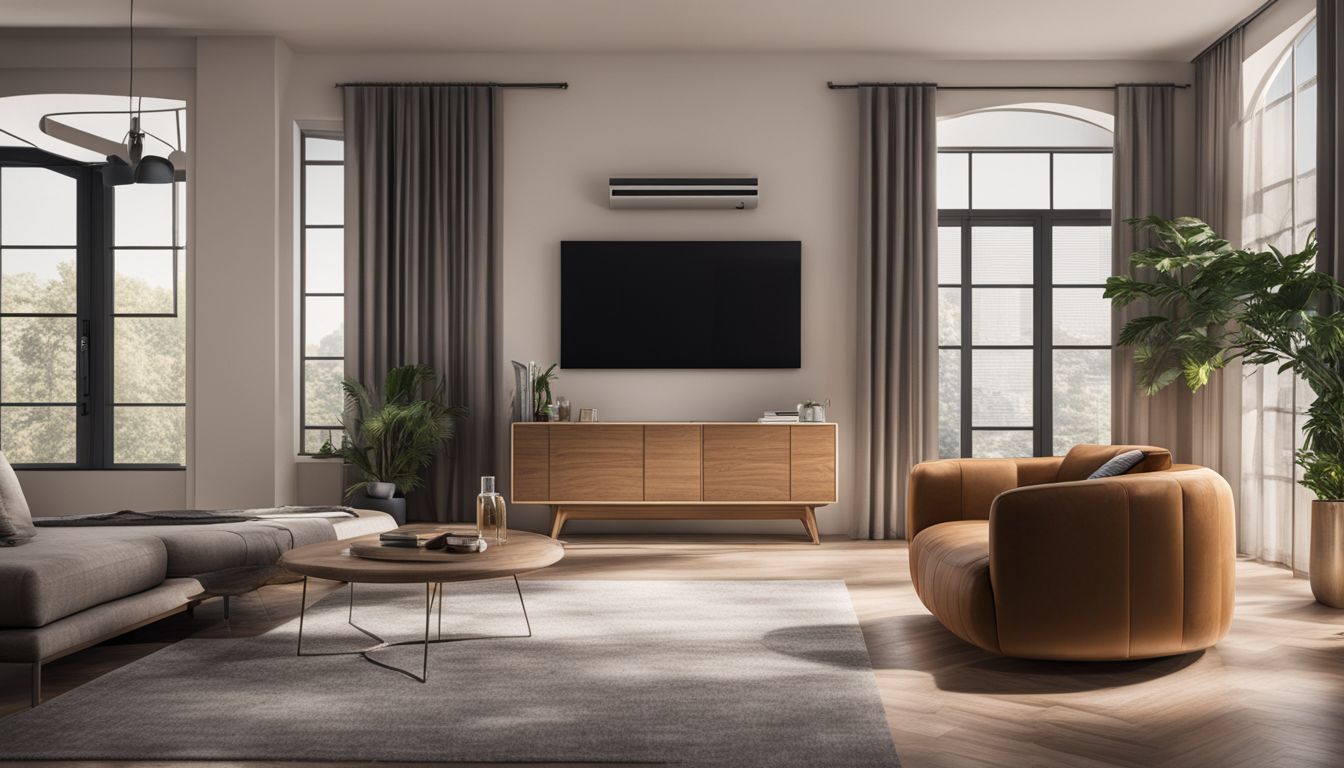
Selecting the correct BTU level for your air conditioner is vital to ensure efficient cooling. BTUs, or British Thermal Units, measure the amount of heat an air-conditioning unit can remove from a room per hour.
A higher BTU rating means more cooling power, but it’s crucial to match this with the size of your space. Choose a unit with too many BTUs and you’ll risk inefficient energy use; too few, and your room won’t cool properly.
Installation costs rise as the BTU capacity increases. Small rooms may only need a system 1 aircon unit costing below S$1000 to S$2000 based on its capacity. Larger areas often require more powerful systems which could push prices up to around S$5000 for high-BTU models.
Always consult an expert or utilise online calculators found on various websites if you’re uncertain about what size suits your needs best. Balancing between sufficient cooling and staying energy efficient will save money in the long run.
The Financial Benefits of Professional Aircon Installation
Hiring a professional to install your aircon can save you money in the long run. Proper installation ensures that your air-conditioning system runs at peak efficiency, lowering energy bills and reducing wear on the unit itself.
Moreover, experts can help choose an air conditioner with the right BTU level for your space, preventing overspending on unnecessary power.
A well-installed aircon also maintains better indoor air quality by properly controlling humidity and temperature. This could mean fewer health issues like allergies or respiratory problems for occupants, which translates to less spending on healthcare.
In businesses, efficient climate control contributes to a comfortable environment where employees are more productive and customers are happier – boosting profits indirectly through improved staff performance and increased client satisfaction.
Air Conditioner Maintenance Cost
Regular maintenance keeps your air conditioner running efficiently and can help prolong its lifespan. Costs for these services vary depending on the type of service offered, whether it’s a one-time job or part of a yearly contract, and the number of air-conditioning units you have.
Typically, homeowners in Singapore might spend anywhere from $35 to $120 for a single general air conditioning service session.
Consider the frequency as well; an annual servicing package may range from $150 to $500, with variations based on unit count and complexity. For instance, maintaining several window units will be at the lower end of this spectrum while centralised systems requiring more extensive care could reach higher fees.
Regular filter changes, cleaning evaporator coils and ensuring refrigerant levels are topped up all fall under crucial maintenance activities that factor into these costs.
Making the Most of Your Aircon Investment
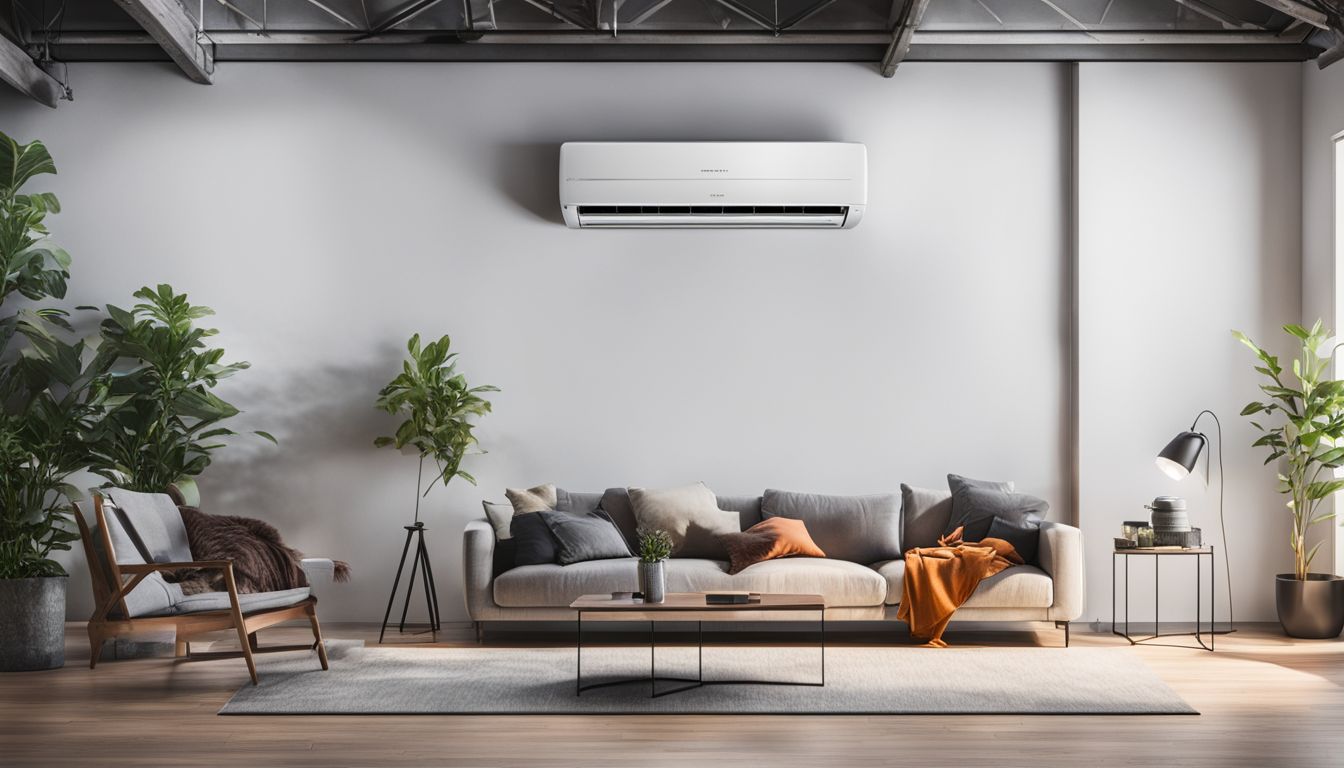
Maximise your aircon efficiency by selecting a model with a high star energy rating. These units consume less power, leading to lower electricity costs per hour and making a noticeable difference in your utility bills over time.
Ensure you understand the features of your chosen air-conditioner; smart usage can enhance cooling without unnecessary expense. Consider models that adjust their output based on room temperature, as they offer cost-effective performance.
Schedule regular maintenance for your air conditioning systems to prevent costly breakdowns and extend their lifespan. Clean filters and checked refrigerant levels mean your unit will run smoothly, keeping those monthly utilities in check.
Investing in an inverter air conditioner can also be wise; they’re designed to use less energy while maintaining consistent temperatures across Singapore’s varying climates, ensuring comfort alongside savings.
Conclusion
Investing in air-conditioning is a significant decision that calls for careful financial planning. Recognise the variety of factors like type, property, and BTU levels that play into installation costs.
Consider professional services to ensure quality and efficiency in your investment. Keep maintenance expenses in mind for long-term budgeting. Making informed choices about aircon systems enables you to stay cool without overheating your bank account.
FAQs
1. What factors affect the cost of installing an air-conditioning system?
The cost of installing an air-conditioner can vary based on the type of system, the size of your home, and the complexity of the installation process.
2. Will I find different prices for aircon systems online?
Yes, you can compare different prices for air-conditioning systems by searching on the web using a browser to find a deal that suits your budget.
3. Can I install an aircon system by myself to save costs?
While some people with appropriate skills can install their air-conditioners, professional installation ensures that your system works efficiently and safely.
4. How often should I service my new aircon to avoid extra costs in the future?
Regular servicing helps keep your air-conditioning unit running smoothly and may prevent costly repairs or breakdowns. It’s usually recommended to service your unit at least once a year.

